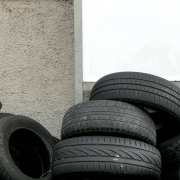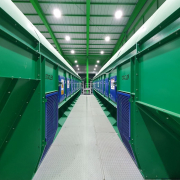Collaborative Approach Essential if Vital Material Flows Are to Be Safeguarded
The latest session of the BIR International Trade Council (ITC) would be devoted to “a subject that has generated a great deal of passion”, stated Michael Lion, President of Hong Kong-based Everwell Resources Ltd, in his introductory comments of the session, which he chaired and moderated.
The ensuing hour was to prove his point as several recycling industry representatives voiced their frustration at the EU’s newly-adopted Waste Shipment Regulation (WSR) and its potential to disrupt long-established international flows of recyclables captured under the EU’s “waste” definition. At the same time, there was general agreement on the need for open lines of communication and collaboration to ensure the smoothest possible implementation of the regulation. It was essential to find a way forward to safeguard “the amazingly important role of our industry”, said Mr Lion.
The ITC’s guest speaker at Copenhagen’s Bella Center on May 27 was Martyna Robakowska, Policy Officer at the European Commission’s DG Environment. She began by explaining that the key objectives of the recently-adopted regulation were to ensure that the environment was protected in relation to shipments of waste and that the EU met its requirements under multilateral environmental agreements.
Under this revised WSR, she explained, exports to non-OECD countries after May 2027 would be allowed only if the receiving country had notified the European Commission of its willingness to accept the material; this notification would need to be supported by documentation covering, for example, a list of the requested waste, the national waste management plan/strategy, the country’s environmental protection legislation and a list of its authorized waste recovery facilities. Meanwhile, EU exporters would have to demonstrate that the waste was to be managed in an environmentally sound manner by ensuring independent audits were conducted on the facilities to which they were shipping.
“The most controversial issue” in the WSR revision process, according to Ms Robakowska, surrounded additional restrictions for exports of plastic waste, culminating in a ban on EU shipments to non-OECD countries from November 2026, with a derogation possible upon request from non-OECD countries from May 2029.
Given that this regulation had now been formally adopted, Mr Lion stressed the need for a collaborative approach with the European Commission to ensure fulfilment of the regulation’s objectives with minimal disruption to international flows of the recycling industry’s “vital” materials.
Julia Blees, Secretary General of the European Recycling Industries’ Confederation, insisted on the “absolutely crucial” importance of stakeholder engagement, not least with importing countries to ensure they understood the impact of the changes and applied in time to receive the materials they required. “Everybody needs to know what they have to do now,” she said.
“We need to communicate and to engage,” agreed Ibrahim Aboura, Managing Director of Aboura Metals in the UAE and Chairman of the BIR Communications Committee. “This (revised WSR) is implemented and we need to look forward.”
Following an observation from Mr Lion that exporters operated within “a very immediate market” requiring a rapid response, the concern was expressed by John Sacco, President and Co-Owner of Sierra International Machinery in the USA, that inevitable errors would lead to insurmountable delays for businesses unless there was immediate collaboration to ensure “disputes are settled in hours not months”, he said. “Now is the time to sit at the table together.”
Murat Bayram, Managing Director of European Metal Recycling in the UK, expressed his frustration with what he termed “a one-size-fits-all regulation” and called on the European Commission to enforce the revised WSR in a way that did not damage an industry positioned at the very heart of the drive towards sustainability.
Ms Robakowska insisted that the intention of the regulation was to protect the environment rather than to disrupt trade and that the European Commission was open to collaboration and to helping make the process as smooth as possible. Contact was already being made with non-OECD countries about the practical implications of the WSR revision, she said, adding that recycling companies could also play a part by reaching out to importing countries to encourage them to apply.
Mr Lion contended that a bilateral approach could prove the most effective means of encouraging important overseas customers to engage with the process on the basis that this would safeguard their own interests. He also asked whether there was scope for a working group involving the European Commission and the recycling industry to identify and overcome potential problems.
Ms Blees followed up with an invitation to European Commission officials to visit recycling facilities to gain a clearer appreciation of the industry’s activities.
Source: BIR (Brussels, May 30, 2024)









